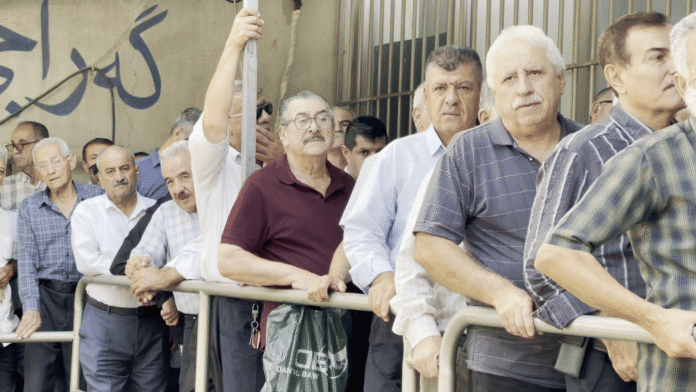Workers in Erbil breathed a sigh of relief. After 85 long days without income, public employees finally collected their delayed salaries. Crowds quickly formed at local banks and ATMs across the city.
The delay had pushed many families into debt. Karwan, a government employee, explained the struggle. “We borrowed money and sold items just to survive. This salary helps, but it doesn’t fix everything,” he said.
Abdullah, another worker, shared his concerns. “Yes, we got paid today. But many still feel uncertain. People believe their lives are being used as bargaining chips between governments.”
The standoff between the Kurdistan Regional Government and Baghdad over revenue sharing had frozen payments. Baghdad demanded full control over the Region’s oil and non-oil revenues. Meanwhile, Erbil accused Baghdad of creating obstacles and turning a financial issue into a political game.
Tensions grew after oil exports through Turkiye’s Ceyhan port stopped. In response, Baghdad offered temporary financial advances to the Region. However, it wasn’t enough to cover the growing pressure on public servants.
Things began to shift in February. Iraq’s Federal Supreme Court ordered direct payment of salaries. That decision opened the door for limited payments to reach workers once again.
Despite this progress, many in Erbil remain anxious. Until a clear, lasting agreement is reached, the financial future of thousands remains uncertain.

